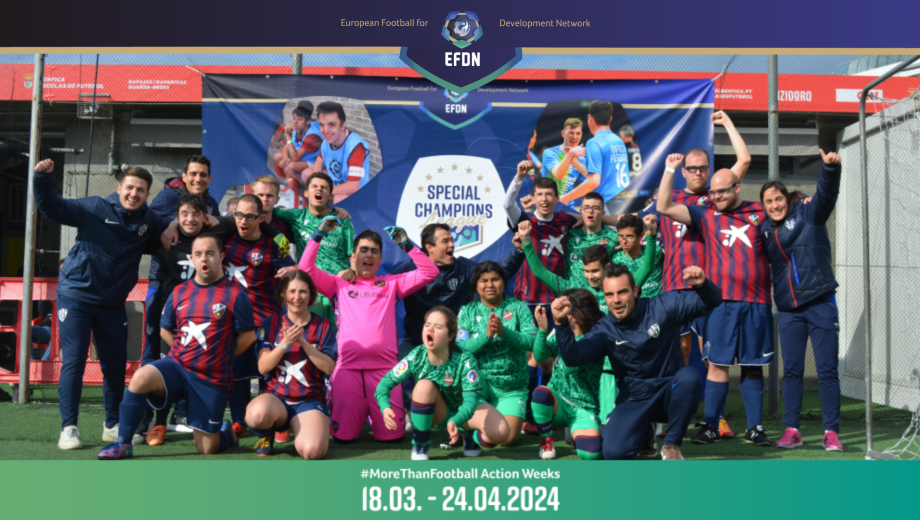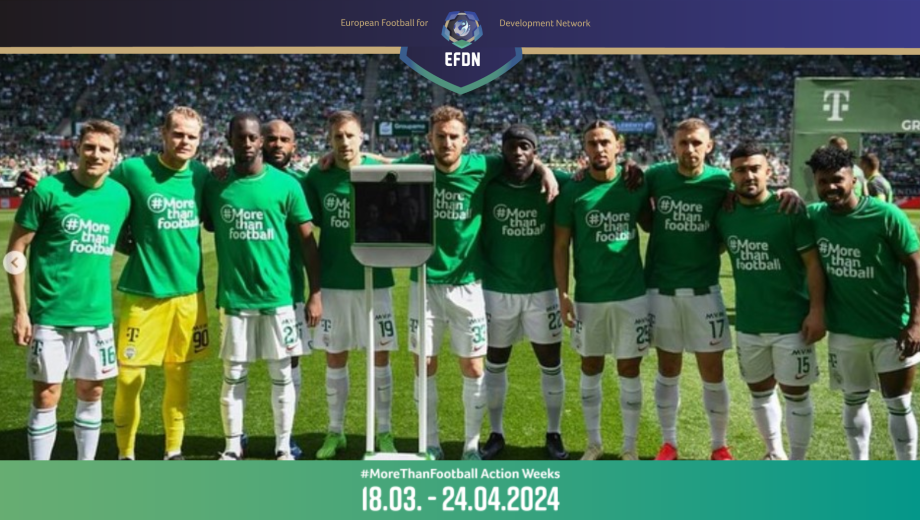Werder Bremen hosted Sustainability Partner Event last week
SV Werder Bremen published its latest sustainability report around a month ago. On around 60 pages, it provides an honest overview of SV Werder Bremen‘s social, ecological and entrepreneurial activities as well as its wide-ranging commitment.
As part of the publication of the 2022/2023 sustainability report, an invitation was sent to the sustainability partner meeting at the Grüne Bude to briefly present the results of the sustainability report to the network and to discuss it and the future prospects of sustainability in football in a panel talk with Anne-Kathrin Laufmann (Managing Director Sustainability & Sport at SV Werder Bremen), Tanja Ferkau (founder of IMPCT gGmbH) and Stefan Wagner (1st Chairman of Sport for Future).
Sparkasse Bremen also presented its “Score Goals – Plant Trees” campaign as an example of sustainable cooperation between partner companies and SV Werder Bremen, in which a tree is planted in the city of Bremen at the end of the season for every goal scored by the women’s Bundesliga team. A total of around 50 representatives from the sustainability partner network took part in the meeting and used the opportunity to exchange ideas with each other.
Professional Sport as a role model
Anne-Kathrin Laufmann opened the evening by welcoming the numerous sustainability partners in attendance and emphasised that SV Werder Bremen’s second sustainability report provides the most honest and transparent insight possible into the club’s wide-ranging commitment. Despite flagship projects such as the SPIELRAUM concept, the ecological generation of energy through the photovoltaic systems at the Weserstadion or the campaign match days, such as the recent match day for inclusion, the club is nevertheless aware of the major challenges that still need to be actively addressed. These include, in particular, the issue of fan mobility, i.e. fans travelling to and from matches, sometimes over long distances, which accounts for a large proportion of CO2 emissions in the day-to-day business of professional football.
This problem was also addressed again in the subsequent panel discussion. CSR manager Stefan Wagner believes that the responsibility for this lies not only with the clubs, but also with the associations, who must lead the way as umbrella organisations. Especially with projects such as the expansion of the next World Cup and European Football Championship to different host countries (World Cup 2026: USA, Mexico and Canada and Euro 2028: England, Wales, Ireland, Northern Ireland and Scotland), FIFA and UEFA are not currently acting as role models, as fans are travelling long distances to and from the event. This is at odds with the organisation’s own sustainability standards.
Tanja Ferkau agreed and argued that a successful sustainability strategy can only work if the clubs, associations, companies and fan representatives work together strategically and form a symbiosis to generate suitable solutions and innovative ideas. Because the football business definitely has the radiant power for this due to its socially pervasive effect. She cites the sustainability criteria adopted by the DFL in 2022, which clubs in the first and second Bundesliga must adhere to, as a positive example. Nevertheless, she believes that there is still room for improvement in the area of environmental sustainability, as the other side of the coin is that the DFL’s catalogue of criteria was reduced during the decision-making process.
It can be seen that the topic of environmental sustainability has only really gained momentum in the industry in recent years. According to Stefan Wagner, the problem for a long time was that the issue of sustainability was not a top priority in day-to-day business and that the resources of clubs in particular, which found themselves in sporting and economic crisis situations, had to be used for other purposes. The fact that there is nevertheless a rethink in this area is due to the fact that every individual, as well as the clubs themselves, are directly or indirectly affected by climate change. For example, Anne-Kathrin Laufmann lists the rising water level of the Weser due to changing climate conditions or the increasing risk of flooding as very specific examples that could pose a very real threat to the existence of SV Werder Bremen with the location of the Weserstadion directly next to the Weser. She also emphasised that, in addition to her own concerns, social responsibility as a large company is the driving force behind the active further development of Werder Bremen’s sustainability strategy.
In the end, all three panellists agreed on one point in particular: professional sport must act as a role model and actively work as a driving force in cooperation with science, companies, political institutions and fans to further optimise structures with regard to ecological sustainability.




